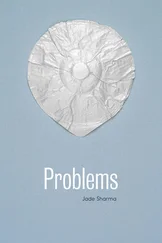Akhil Sharma - An Obedient Father
Здесь есть возможность читать онлайн «Akhil Sharma - An Obedient Father» весь текст электронной книги совершенно бесплатно (целиком полную версию без сокращений). В некоторых случаях можно слушать аудио, скачать через торрент в формате fb2 и присутствует краткое содержание. Год выпуска: 2000, Издательство: W. W. Norton & Company, Жанр: Современная проза, на английском языке. Описание произведения, (предисловие) а так же отзывы посетителей доступны на портале библиотеки ЛибКат.
- Название:An Obedient Father
- Автор:
- Издательство:W. W. Norton & Company
- Жанр:
- Год:2000
- ISBN:нет данных
- Рейтинг книги:4 / 5. Голосов: 1
-
Избранное:Добавить в избранное
- Отзывы:
-
Ваша оценка:
- 80
- 1
- 2
- 3
- 4
- 5
An Obedient Father: краткое содержание, описание и аннотация
Предлагаем к чтению аннотацию, описание, краткое содержание или предисловие (зависит от того, что написал сам автор книги «An Obedient Father»). Если вы не нашли необходимую информацию о книге — напишите в комментариях, мы постараемся отыскать её.
Ram Karan, a corrupt official in New Delhi, lives with his widowed daughter and his little granddaughter. Bumbling, sad, ironic, Ram is also a man corroded by a terrible secret. Taking the reader down into a world of feuding families and politics,
is a work of rare sensibilities that presents a character as formulated, funny, and morally ambiguous as any of Dostoevsky’s antiheroes.
An Obedient Father — читать онлайн бесплатно полную книгу (весь текст) целиком
Ниже представлен текст книги, разбитый по страницам. Система сохранения места последней прочитанной страницы, позволяет с удобством читать онлайн бесплатно книгу «An Obedient Father», без необходимости каждый раз заново искать на чём Вы остановились. Поставьте закладку, и сможете в любой момент перейти на страницу, на которой закончили чтение.
Интервал:
Закладка:
Anita started a brief correspondence with Kusum. They exchanged several pale blue aerograms with Anita's writing tiny and crammed with information and Kusum's long, easy sentences having such spaces in and between them that it appeared as if the details that give meaning had been sieved away. "You live on a hill? How high is it? Is yours the only house on the hill?" Anita wrote. "Do you come down the hill on a road, or on steps, or on a path? A station wagon? Is that a car or is that a wagon with horses? What do you wear to work?" When Anita told me a letter had arrived, she sounded as if she were boasting.
Kusum took longer and longer before answering and then stopped altogether. I wondered if Anita appeared needy or belligerent to her or whether Kusum just did not want to make the effort.
A few times, Anita took Asha and visited relatives around Delhi. They rented comic books for Asha and somebody was sent to buy sweets, but years of jealousy over Rajinder's success had made them see Anita as arrogant, and there was little Anita could do to win their affection other than beg.
Once, Anita told me a story of how she fell in and out of love with Rajinder over the course of a day. I found it so sad that I felt blamed and remained quiet, and, I think, appeared uninterested. As if I had missed the point of the story, all I could say was "Do you want to get married again?"
Anita began crying at this. It was the first time I had seen her cry in months. I had just returned from work and was taking off my shoes in the common room. I could not understand how such a sad and serious conversation could take place between my removing my shirt and my starting to unlace my shoes. Asha came into the common room then. Anita was in the kitchen. Seeing Asha, Anita turned so that her back was to us.
"What use would that be? I would still be the same person."
"Marriages are difficult. What happened was not your fault."
"It's not as though other men would be any better. I would have to be the one who changes."
"Are you complaining again?" Asha asked. She looked at me out of the corner of her eye, as if to have me admire her bold sarcasm.
Before I had even seen Anita turn and flash out of the kitchen, she was beside Asha.
I grabbed Asha by the neck and shook her so that I would be the one to hit her and she would not blame Anita.
"Cry, cry as much as you make other people cry," Anita said to Asha.
One night early in 1992, I went to Mr. Mishra's house for dinner. He wanted me to meet his son and daughter-in-law, who were in Delhi on a New Year's holiday. It was the first time I had been to his home. I got an autorickshaw right outside the alleyway and it took me quickly to Tilak Nagar. The night was so cold I sat on my hands.
The house was one story, white, and on a quiet side street amid a network of quiet side streets. There were no streetlights in Mr. Mishra's neighborhood and the autorickshaw's lamp did not work.
Parts of the road were excavated for sewer repair, so the autorick-shaw had to maneuver cautiously. "This is it," the autorickshaw driver kept saying and stopping.
"This is not it. I want a 2/3."
Mr. Mishra was standing on his Ht veranda and he called out, "Mr. Karan?" when the autorickshaw slowed before his house. I had begun thinking I would have to return home.
While Mr. Mishra opened the veranda gate, his wife and son Naveen came out to greet me. Naveen was short with enormously broad shoulders. Like his father, he was wearing a kurta pajama. "These roads are difficult, Uncleji," he said, and put his hands together in namaste.
"If it rains you can fish in the ditches," Mr. Mishra said.
"We think they're building a canal," Mrs. Mishra added. "Any morning we'll wake to a ship's horn. Will you have tea first or are you hungry?" Mrs. Mishra was a physical education teacher and I had once supervised her.
I followed them into a wide room where three sofas in an L surrounded a low table. In the back of the room, near a doorway, was a dining table. Naveen's wife, Lakshmi, sat on one of the sofas with her infant son asleep in her lap. She wore a yellow sari and her hair, which was long and straight, was loose on her shoulders. "Namaste," Lakshmi whispered when I came in. "I'll put him away," she said, and stood. The sofa cushions were shiny from wear, and some of the chairs around the dining table were mismatched. Till then, because Mrs. Mishra worked, and Naveen was an IAS officer, I had always thought of Mr. Mishra as wealthy.
When Lakshmi returned, she went into the kitchen with Mrs. Mishra to prepare tea and samosas before dinner. I asked Naveen if Lakshmi worked in the district where he was stationed and was astonished to learn that she had not studied beyond twelfth standard. "In the beginning my postings changed so much, Uncleji, and I wanted Raul to have the same care that I had as a child. No servant can take care of a baby the way a mother can." Probably Naveen had
been asked this question many times before, for he continued, "Lak-shmi is very smart. She was first in her standard and she went to a good school. She would have continued to college."
"Naveen's mother never went past higher secondary," Mr. Mishra interrupted, "and I have never thought less of her or imagined she could have been a better mother if she had."
"I did not even finish higher secondary," I offered, to eliminate any possibility that I was being condescending.
"But Lakshmi's grandfather wanted her married before he died and he was quite sick," Naveen finished. Because Mr. Mishra was so proud of him and because Naveen was an IAS officer, I had expected that he would want me to acknowledge his stature, but he never gave me that sense.
Lakshmi came out of the kitchen carrying a tray of samosas and papar. Behind her came Mrs. Mishra with a tray of teacups. The samosas were not very good, perhaps because Mr. Mishra could not afford good oil, but the tea was strong and sweet. The only other IAS officer I had ever met ran the docks of Bombay and was so rich that he had built an enormous house for his parents in Model Town.
Probably because Mr. Mishra and Naveen kept complimenting me by asking my opinion on the IMF negotiations or Narasimha Rao's chances of survival, I had the sense that the entire family was very smart. I was surprised that Lakshmi talked freely in front of her in-laws and that she had opinions on these issues. "Congress will fall after the next elections," she said.
I had known that I, too, was lonely, because of how much I enjoyed talking with Mr. Mishra at work, but only during that dinner, as my face got flushed and I kept smiling and spilling words everywhere, did I feel how extreme my isolation had been.
The snacks and dinner lasted hours. There were always two people watching me and listening or speaking. Through dinner, Lakshmi checked her baby every twenty minutes. There was rice, roti, two dry subjis and two liquid ones. I praised everyone and everything so much that I began wondering if I appeared to be lying.
By ten I was still excited enough to lean forward whenever I spoke. Mrs. Mishra and Naveen periodically put their hands over their mouths to hide yawns. I hoped they would offer another cup of tea even though I knew I should refuse if they did. I went to the bathroom.
The hallway was fifteen feet long, with two doors facing each other at the end. The bathroom was on the left. As I reached the doors, I noticed the one on the right was slightly open.
I saw a partially lit bed, Lakshmi's shoulder, and the side of the baby's head at an angle as if it was feeding. I thought, I can open the door; it might be considered an accident. Lust's mineral taste filled my mouth. I leaned forward to get a better look.
The door swung open without a creak.
Lakshmi looked up. Both her breasts were uncovered. The nipples were black. She stared at me in shock and did not say anything. I thought, Close the door. I made no move to do so. Still holding the baby, Lakshmi reached for a sheet at the foot of the bed. She couldn't get it. Act surprised, I thought. My face remained rigid. One second. Two seconds. Three seconds. Finally, I pulled the door shut as I whispered an apology.
Читать дальшеИнтервал:
Закладка:
Похожие книги на «An Obedient Father»
Представляем Вашему вниманию похожие книги на «An Obedient Father» списком для выбора. Мы отобрали схожую по названию и смыслу литературу в надежде предоставить читателям больше вариантов отыскать новые, интересные, ещё непрочитанные произведения.
Обсуждение, отзывы о книге «An Obedient Father» и просто собственные мнения читателей. Оставьте ваши комментарии, напишите, что Вы думаете о произведении, его смысле или главных героях. Укажите что конкретно понравилось, а что нет, и почему Вы так считаете.












